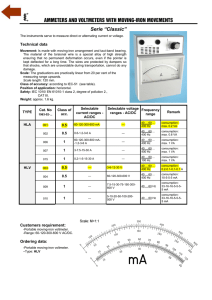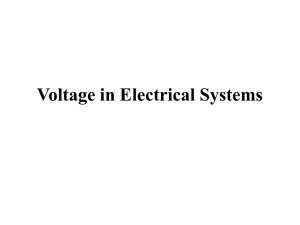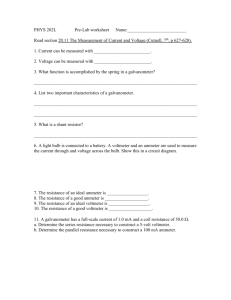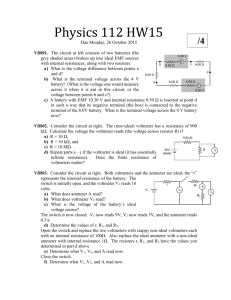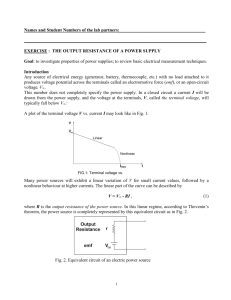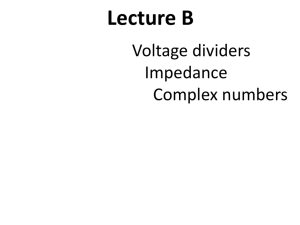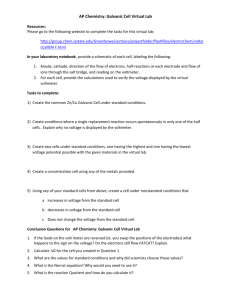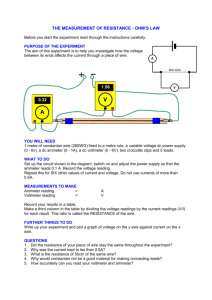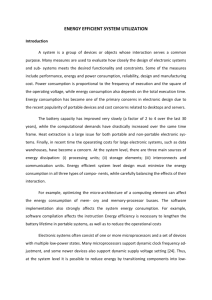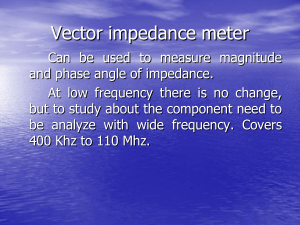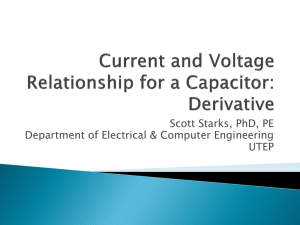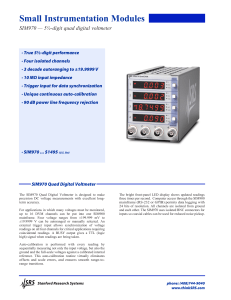TOPIC: 2.8 Electric Potential Difference
advertisement
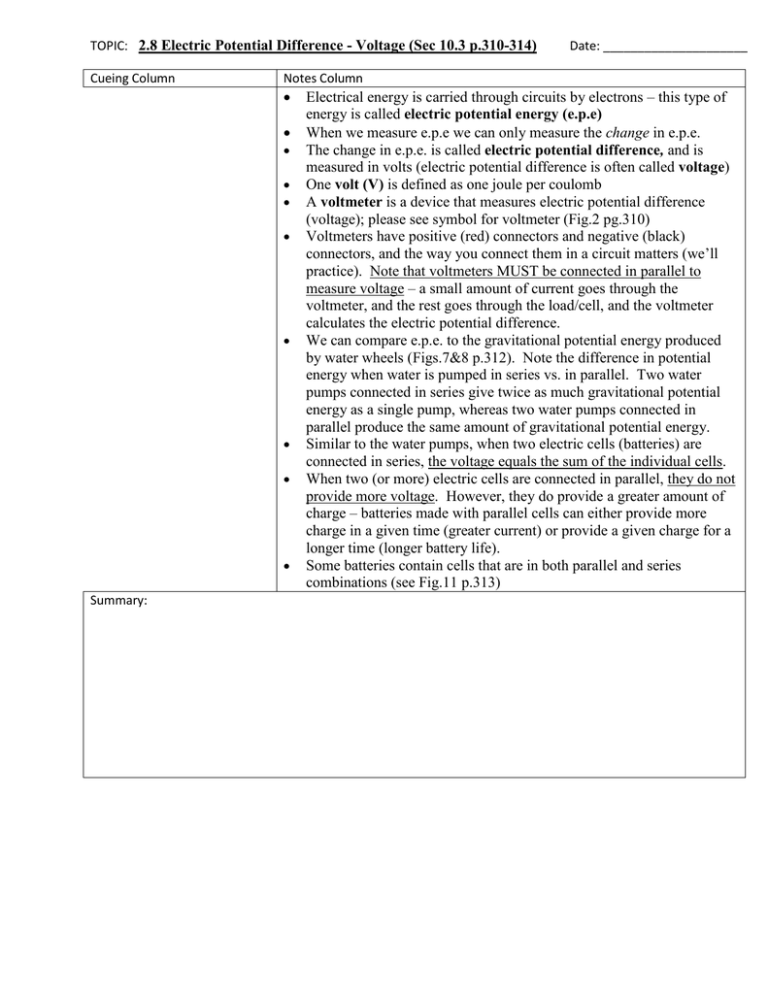
TOPIC: 2.8 Electric Potential Difference - Voltage (Sec 10.3 p.310-314) Cueing Column Notes Column Summary: Date: _____________________ Electrical energy is carried through circuits by electrons – this type of energy is called electric potential energy (e.p.e) When we measure e.p.e we can only measure the change in e.p.e. The change in e.p.e. is called electric potential difference, and is measured in volts (electric potential difference is often called voltage) One volt (V) is defined as one joule per coulomb A voltmeter is a device that measures electric potential difference (voltage); please see symbol for voltmeter (Fig.2 pg.310) Voltmeters have positive (red) connectors and negative (black) connectors, and the way you connect them in a circuit matters (we’ll practice). Note that voltmeters MUST be connected in parallel to measure voltage – a small amount of current goes through the voltmeter, and the rest goes through the load/cell, and the voltmeter calculates the electric potential difference. We can compare e.p.e. to the gravitational potential energy produced by water wheels (Figs.7&8 p.312). Note the difference in potential energy when water is pumped in series vs. in parallel. Two water pumps connected in series give twice as much gravitational potential energy as a single pump, whereas two water pumps connected in parallel produce the same amount of gravitational potential energy. Similar to the water pumps, when two electric cells (batteries) are connected in series, the voltage equals the sum of the individual cells. When two (or more) electric cells are connected in parallel, they do not provide more voltage. However, they do provide a greater amount of charge – batteries made with parallel cells can either provide more charge in a given time (greater current) or provide a given charge for a longer time (longer battery life). Some batteries contain cells that are in both parallel and series combinations (see Fig.11 p.313)
